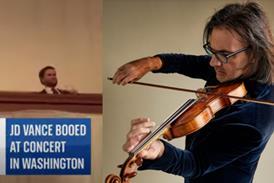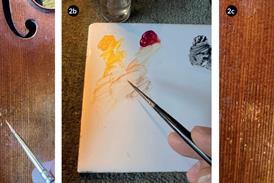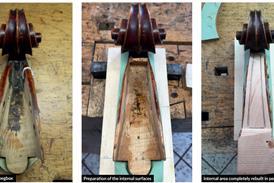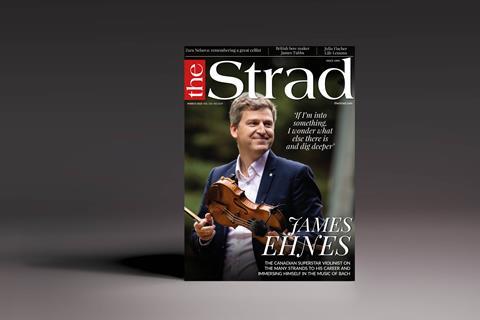Continuing our series of quotes for the festive season, violinist Darragh Morgan examines the role of articulation in minimalism performance practice

Violinist Darragh Morgan: ‘It’s about learning through experience’
This extract comes from The Strad November 2016, in which writer Pwyll ap Sion examined the emergence of minimalism in 1960s America, and asked string players how they overcame the technical and psychological challenges of playing this music. Here, violinist Darragh Morgan looks at aspects of articulation and intuition
‘Not only is correct articulation vital, but it would have a bad effect if you changed articulation either by accident, or through nerves, anxiety or a sudden change in interpretation during the middle of a piece. This would result in massive unevenness. One has to understand minimalism as this kind of “plateau of sound” rather than huge waves coming in and out. This “plateau” shouldn’t get disturbed by any unevenness in bow movement.
‘As with anything in life it’s about learning through experience. Take the left hand in Adams’s Road Movies for violin and piano, from 1995. There are a lot of changing patterns. You rarely stay in the same octave or in the same hand shape constantly so you really have to build up familiarity in the left hand. Once you’ve got that secured you can start to become a little bit more confident with the music and impart your own style. You can take a little bit of time here or push a little bit there, or add a little accent that works with the style of the music, or decide whether to play it in a more bluesy, country style, and so on.’
To read the full article, Track Changes, published in The Strad November 2016, click here to log in or subscribe.
Read: The Carducci Quartet on Shostakovich’s string quartets




![[2] Echo Theory pc Lukas Breuer - Copy](https://dnan0fzjxntrj.cloudfront.net/Pictures/274x183/2/5/7/38257_2echotheorypclukasbreuercopy_270148.jpg)
















































No comments yet